
Humpty Dumpty is a character in an English nursery rhyme, probably originally a riddle and one of the best known in the English-speaking world. He is typically portrayed as an anthropomorphic egg, though he is not explicitly described as such. The first recorded versions of the rhyme date from late eighteenth-century England and the tune from 1870 in James William Elliott's National Nursery Rhymes and Nursery Songs. Its origins are obscure, and several theories have been advanced to suggest original meanings.
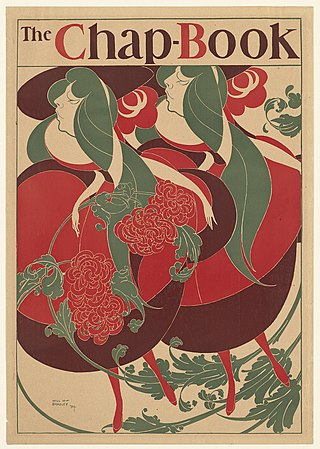
In the United States, a little magazine is a magazine genre consisting of "artistic work which for reasons of commercial expediency is not acceptable to the money-minded periodicals or presses", according to a 1942 study by Frederick J. Hoffman, a professor of English. While George Plimpton disagreed with the diminutive connotations of "little", the name "little magazine" is widely accepted for such magazines. A little magazine is not necessarily a literary magazine, because while the majority of such magazines are literary in nature, containing poetry and fiction, a significant proportion of such magazines are not. Some have encompassed the full range of the arts, and others have grown from zine roots.
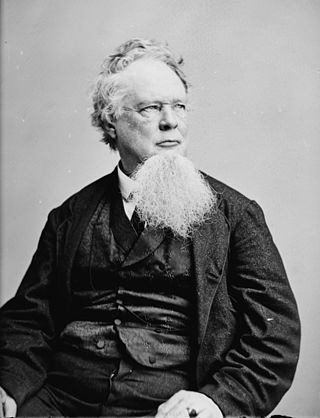
William Gilmore Simms was a poet, novelist, politician and historian from the American South. His writings achieved great prominence during the 19th century, with Edgar Allan Poe pronouncing him the best novelist America had ever produced. He is still known among literary scholars as a major force in antebellum Southern literature. He is also remembered for his strong support of slavery and for his opposition to Uncle Tom's Cabin, in response to which he wrote reviews and the pro-slavery novel The Sword and the Distaff (1854). During his literary career he served as editor of several journals and newspapers and he also served in the South Carolina House of Representatives.
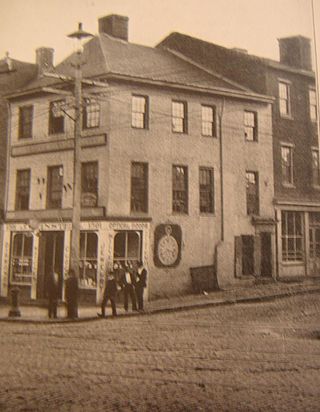
The Southern Literary Messenger was a periodical published in Richmond, Virginia, from August 1834 to June 1864, and from 1939 to 1945. Each issue carried a subtitle of "Devoted to Every Department of Literature and the Fine Arts" or some variation thereof and included poetry, fiction, nonfiction, reviews, and historical notes. It was founded by Thomas Willis White, who served as publisher and occasional editor until his death, in 1843.

Southern United States literature consists of American literature written about the Southern United States or by writers from the region. Literature written about the American South first began during the colonial era, and developed significantly during and after the period of slavery in the United States. Traditional historiography of Southern United States literature emphasized a unifying history of the region; the significance of family in the South's culture, a sense of community and the role of the individual, justice, the dominance of Christianity and the positive and negative impacts of religion, racial tensions, social class and the usage of local dialects. However, in recent decades, the scholarship of the New Southern Studies has decentralized these conventional tropes in favor of a more geographically, politically, and ideologically expansive "South" or "Souths".
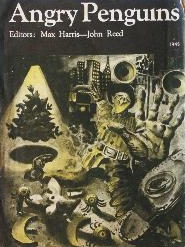
Angry Penguins was an art and literary journal founded in 1940 by surrealist poet Max Harris. Originally based in Adelaide, the journal moved to Melbourne in 1942 once Harris joined the Heide Circle, a group of modernist painters and writers who stayed at Heide, a property owned by art patrons John and Sunday Reed. Angry Penguins subsequently became associated with, and stimulated, an art movement now known by the same name. The Angry Penguins sought to introduce avant-garde ideas into Australian art and literature, and position Australia within a broader international modernism. Key figures of the movement include Sidney Nolan, Arthur Boyd, Joy Hester and Albert Tucker.

The Musical Times is an academic journal of classical music edited and produced in the United Kingdom and the oldest such journal still being published in the country.
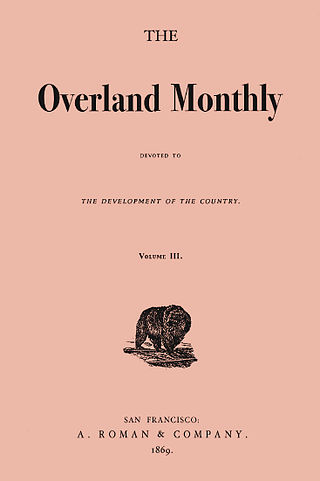
The Overland Monthly was a monthly literary and cultural magazine, based in California, United States. It was founded in 1868 and published between the second half of the 19th century and the first half of the 20th century.
The New Monthly Magazine was a British monthly magazine published from 1814 to 1884. It was founded by Henry Colburn and published by him through to 1845.

Joseph Dennie was an American author and journalist who was one of the foremost men of letters of the Federalist Era. A Federalist, Dennie is best remembered for his series of essays entitled The Lay Preacher and as the founding editor of The Port Folio, a journal espousing classical republican values. Port Folio was the most highly regarded and successful literary publication of its time, and the first important political and literary journal in the United States. Timothy Dwight IV once referred to Dennie as "the Addison of America" and "the father of American Belles-Lettres."

William Trotter Porter was an American journalist and newspaper editor who founded an early American newspaper devoted to sports. After working at a number of small newspapers, Porter moved to New York City in the 1830s. After employment at a newspaper in the city, he founded the Spirit of the Times, a newspaper modeled on a London paper called Bell's Life in London. The Spirit, which went through a number of names and incarnations over the years, was devoted to sports and other recreational pursuits. One of Porter's main interests involved horse racing, and he was involved in attempts to create the first stud book in the United States, which did not bear fruit. He was also instrumental in the development of American literature, as the Spirit published a number of short stories by American tall tale writers, and Porter edited two collections of short stories by American writers. After publishing the Spirit through the 1830s, he sold it to another printer but continued as the editor into the 1850s. He left the original Spirit in 1855 and in 1856 was hired as editor for another sporting newspaper, Porter's Spirit of the Times, published by George Wilkes. Porter died in 1858.

William Carey Crane was an American Baptist minister, an educator, and the president of Baylor University from 1864 to 1885.
The Boston Miscellany of Literature and Fashion was a monthly literary and fashion magazine published in Boston, Massachusetts from 1842 to 1843. It also published book reviews and music.
The literature of Georgia, United States, includes fiction, poetry, and nonfiction. Representative writers include Erskine Caldwell, Carson McCullers, Margaret Mitchell, Flannery O’Connor, Charles Henry Smith, and Alice Walker.

Catharine Webb Barber was an American teacher, newspaper editor, and author. She was born in Massachusetts, but came South, settling first in Georgia and afterward in Alabama. According to The Alabama Review, 1983,— "Establishing a bibliography of the works of Catharine W. Barber Towles McCoy is as difficult as establishing the facts of her life. Only a few of her numerous contributions to ephemeral Georgia periodicals can now definitely be known."
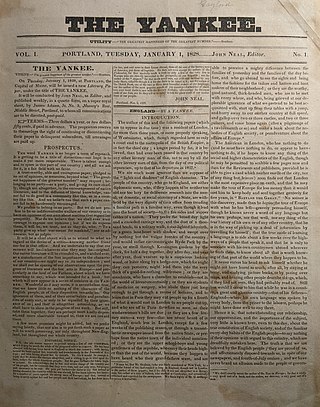
The Yankee was one of the first cultural publications in the United States, founded and edited by John Neal (1793–1876), and published in Portland, Maine as a weekly periodical and later converted to a longer, monthly format. Its two-year run concluded at the end of 1829. The magazine is considered unique for its independent journalism at the time.
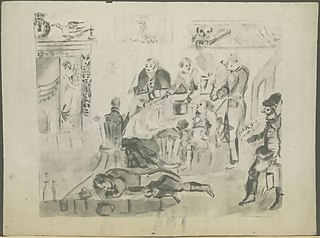
The Delphian Club was an early American literary club active between 1816 and 1825. The focal point of Baltimore's literary community, Delphians like John Neal were prodigious authors and editors. The group of mostly lawyers and doctors gathered weekly to share refreshments and facetious stories, with many of their works being published in The Portico magazine. The club's structure and terminology were inspired by classical antiquity and comical verbosity. Sixteen men claimed membership over the club's nine-year run, with no more than nine serving at a time. Edgar Allan Poe satirized the group in his unpublished Tales of the Folio Club in the 1830s.
Katherine Ann Richards DuBose was an American author who often published under the name Leila Cameron.
Cornelia Richards was a 19th-century American writer.
William Carey Richards was an American magazine editor, author, and Baptist minister, known for his contributions to literature and magazines of the Southern United States during the 19th century.














